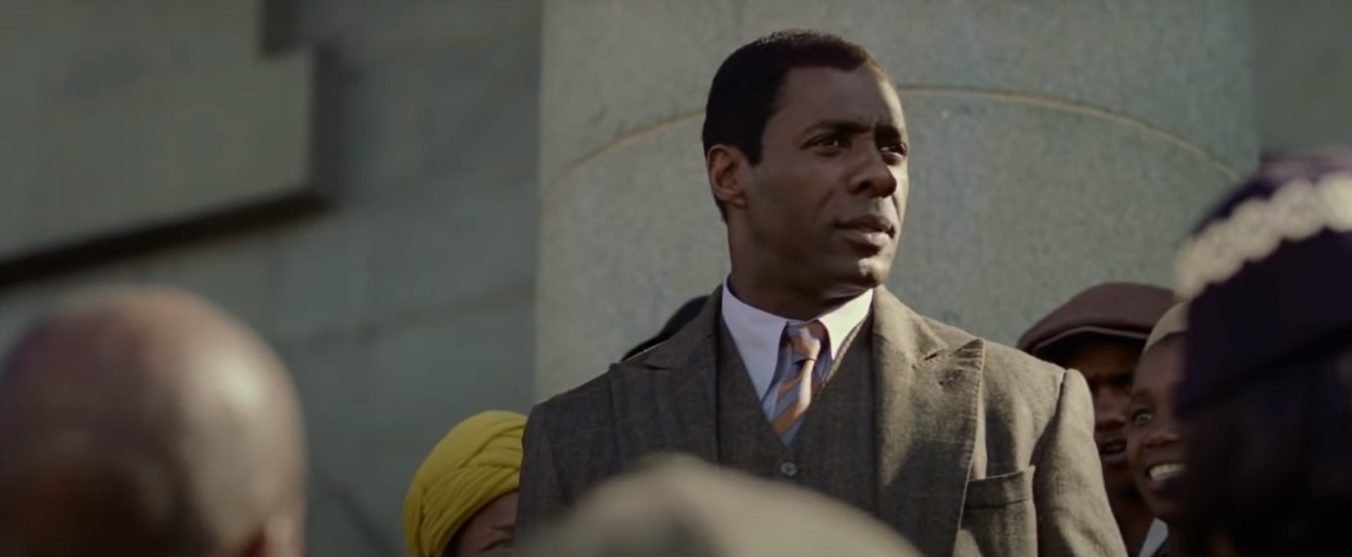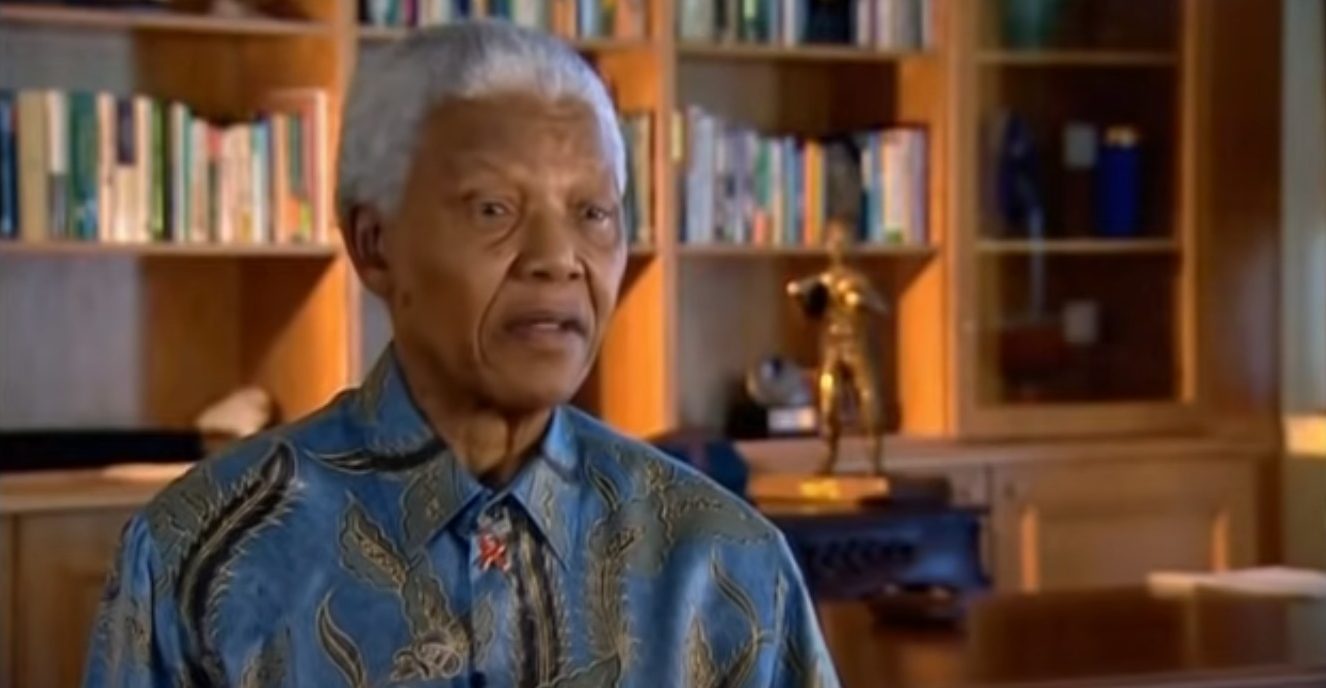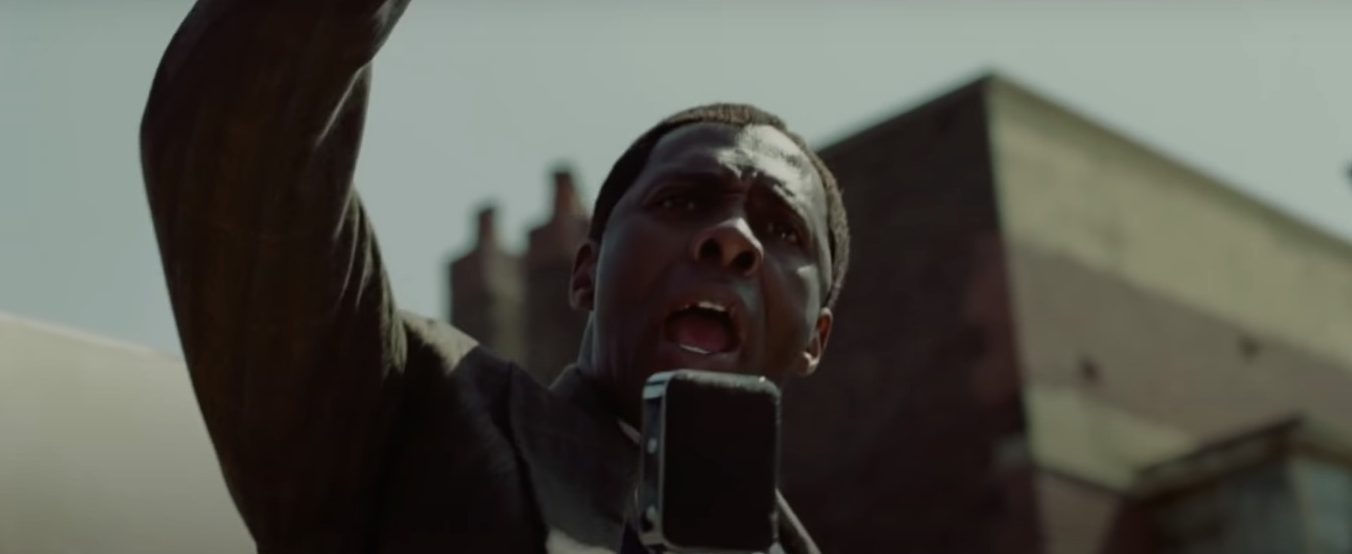‘Mandela: Long Walk to Freedom’ is a 2013 British-South African drama movie about the titular politician and freedom fighter who guides his country through a particularly dark time in history. The film has a multi-decade narrative that covers Mandela’s rural childhood, early political days, relationships, and years as a revolutionary. The story also folds in the protagonist’s final victory after years of struggle and imprisonment.
Directed by Justin Chadwick, the film is hailed for its powerful story, brought alive by Idris Elba, who essays Nelson Mandela. It has all the hallmarks of an epic historical story, but is any of it actually true? Let’s look closely at ‘Mandela: Long Walk to Freedom’ and examine it for ourselves.
The Real-Life Inspiration Behind the Movie
Yes, ‘Mandela: Long Walk to Freedom’ is based on a true story. The film is adapted from the revolutionary Nelson Mandela’s 1994 autobiography, which was ghostwritten by Richard Stengel. Both the book and its cinematic version follow Mandela through his early life and education, the almost three decades he spent in prison, his political career, and his eventual rise to the South African presidency. Furthermore, the politician’s passionate relationship with his second wife is explored. The book was converted to a screenplay by William Nicholson and subsequently helmed by Justin Chadwick.

Interestingly, producer Anant Singh began working on the project decades ago; he interviewed Mandela while the latter was in prison and subsequently began developing what would eventually become ‘Mandela: Long Walk to Freedom.’ The makers acknowledge that the film is based on Mandela’s own book (as opposed to following an objective description of his life). At the movie’s premiere, Singh said, “His personal point of view is the way we made this film. It was the Mandela that you think you know, but you don’t know.”
One of the film’s objectives was also to portray what made the prolific politician tick. Under South Africa’s apartheid government, Nelson Mandela was branded a terrorist and imprisoned for 27 years. After starting his career as a lawyer in Johannesburg, he soon joined the anti-colonial nationalist movement. As part of the African National Congress, he co-founded the Youth League in 1944, and later in association with the South African Communist Party in 1961, he co-founded the uMkhonto we Sizwe. The latter is a militant group that attempted to sabotage government activities.
After being handed life imprisonment for conspiring to overthrow the government, Mandela was finally released from prison in 1990 amid growing international pressure and fears of a racial civil war. After his release, he went on to successfully fight the country’s first democratic elections in 1994, becoming South Africa’s first Black head of state. The film does a respectable job of covering many aspects of Mandela’s life and political career, including his involvement with the violent uMkhonto we Sizwe.

Moreover, Mandela himself never hid the fact that he had helped found the militant group, and the screen adaptation of his autobiography depicts multiple instances of violence perpetrated by the group. However, it also carefully explains why he was driven to those measures. Another important aspect the film covers is Mandela’s powerful relationship with his second wife, Winnie Madikizela-Mandela (Naomi Harris). The couple’s passionate love for one another, as well as Winnie’s proclivities for violent solutions, are depicted quite convincingly.
‘Mandela: Long Walk to Freedom’ benefits greatly from the deep research that has gone into its making. After getting the rights to the film adaptation of Mandela’s autobiography, Anant Singh apparently spent the next sixteen years working on the project. He claimed to be quite close to the subject and was given complete access to the archives at the Nelson Mandela Center of Memory. “[Mandela] was very supportive, but he basically said, I’m granting you the rights, don’t bother me,” Singh recalled.
The producer added, “Occasionally, we would go to his office and his Centre of Memory, and they were a resource to give us everything, and they were so open in all of that.” Ultimately, ‘Mandela: Long Walk to Freedom’ traces the real-life story of Nelson Mandela quite accurately. However, it is worth keeping in mind that since it is based on his autobiography, the film highlights aspects that Mandela himself focused on and leaves other points relatively obscured.
While it covers a broad narrative, the movie is relatively vague on the instrumental 1976 Soweto uprising. This is because Mandela’s book is similarly light on the event. Nonetheless, the biographical ‘Mandela: Long Walk to Freedom’ checks all the boxes for those wanting a clear and entertaining depiction of Nelson Mandela that offers sufficient historical insight.


You must be logged in to post a comment.